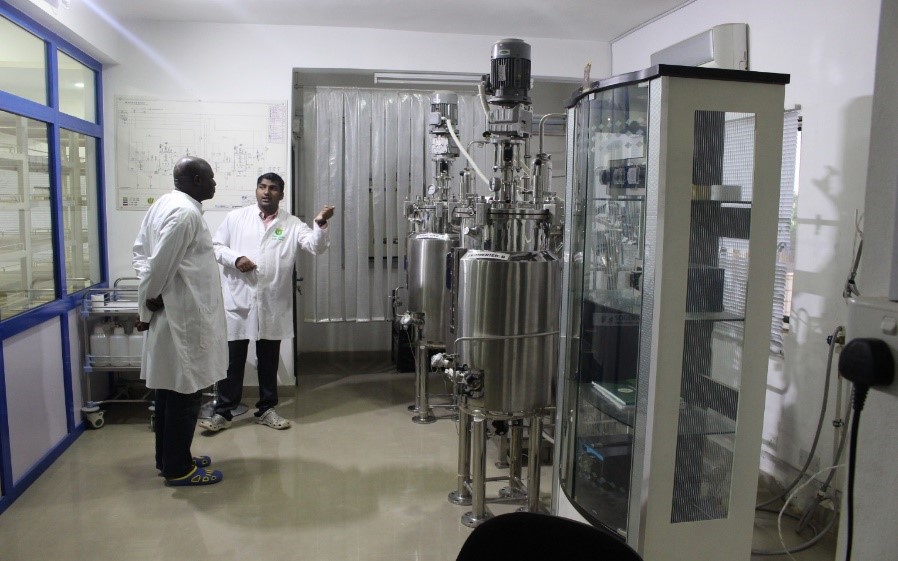
In the ever-evolving landscape of agribusiness, technological advancements are transforming how we process and add value to agricultural products. From drones and mobile apps to IoT devices and robots, these innovations are not only enhancing efficiency and quality but also opening up new market opportunities. This article delves into how these technologies are revolutionizing agribusiness in Nigeria and across Africa, offering valuable insights that could elevate your agribusiness to new heights.
The Power of Digital and Smart Applications in Agribusiness
Digital and smart applications are at the forefront of the agricultural revolution. They bring unprecedented precision and efficiency, ensuring that agricultural products are processed and enhanced to meet global standards. Here’s how:
1. Quality Control and Monitoring
– IoT Sensors: In South Africa, IoT sensors are widely used in wine production to monitor fermentation conditions, ensuring optimal quality and consistency. These sensors track temperature, humidity, and pH levels, providing real-time data that helps maintain product quality.
– Blockchain Technology: In Kenya, blockchain technology is employed to trace coffee beans from farm to cup, ensuring transparency and authenticity. This traceability enhances trust among consumers and increases the market value of the products.
2. Automation and Robotics
– Robotic Processing: In Nigeria, robotic systems are being used in rice processing plants to sort and package rice efficiently. This automation reduces labor costs, minimizes human error, and ensures a consistent quality of the packaged product.
– Automated Packaging Lines: In Ghana, cocoa processing plants utilize automated packaging lines to speed up the packaging process while maintaining hygiene standards. This technology helps meet international quality standards, opening up more export opportunities.
3. Precision Agriculture
– Drones: Nigerian farmers are increasingly using drones for aerial surveillance, crop health monitoring, and precise pesticide application. Drones help identify issues early, ensuring timely interventions and improving crop yields.
– Precision Spraying: In Ethiopia, drones and automated sprayers are used to apply fertilizers and pesticides accurately, reducing waste and environmental impact.
4. Data Analytics and Artificial Intelligence
– Predictive Maintenance: In Egypt, AI-driven predictive maintenance in processing facilities helps predict machinery failures before they occur, reducing downtime and saving costs. This proactive approach ensures continuous operation and productivity.
– Quality Prediction: AI algorithms in Nigerian cassava processing plants analyze data to predict the quality of the final product. This real-time analysis allows for adjustments that ensure consistent product quality.
5. Supply Chain Optimization
– Real-Time Tracking and Management: Mobile apps like Farmcrowdy in Nigeria provide real-time tracking of agricultural products from farm to market, ensuring timely delivery and reducing post-harvest losses.
– Demand Forecasting: In Uganda, data analytics tools help farmers and processors forecast demand, allowing them to adjust production schedules and inventory levels accordingly, reducing waste and optimizing profits.
6. Enhanced Food Safety
– Automated Sterilization: In Tanzanian dairy processing plants, IoT-enabled sterilization systems ensure that milk is processed under stringent safety standards, extending shelf life and maintaining quality.
– Smart Packaging: In Nigeria, smart packaging solutions with freshness indicators are being introduced for fresh produce, providing consumers with real-time information about product quality.
7. Consumer Engagement and Transparency
– Mobile Apps for Consumers: Apps like Zenvus in Nigeria provide consumers with detailed information about the origin and journey of their food products, enhancing trust and satisfaction.
– QR Codes and Blockchain: In Ghana, QR codes linked to blockchain data provide detailed product histories, ensuring authenticity and building consumer trust.
8. Energy Efficiency and Sustainability
– Smart Energy Management: In Kenyan tea processing plants, IoT devices optimize energy use, reducing costs and environmental impact.
– Sustainable Practices: Digital systems in Nigerian palm oil processing monitor resource use, ensuring sustainable practices that align with global environmental standards.
Real-World Success Stories
– Farmcrowdy: This Nigerian platform connects farmers with investors and provides real-time data on farming activities. By integrating IoT devices and mobile apps, Farmcrowdy ensures efficient farm management and increased productivity.
– Twiga Foods: In Kenya, Twiga Foods uses mobile technology to link farmers with markets, reducing inefficiencies in the supply chain and ensuring farmers get better prices for their produce.
– Hello Tractor: Known as the “Uber for Tractors” in Nigeria, Hello Tractor uses IoT devices and mobile apps to provide tractor services on demand, increasing mechanization and productivity for smallholder farmers.
Conclusion
The integration of digital and smart applications in agribusiness is not just a trend; it’s a revolution that is here to stay. By adopting these technologies, agribusinesses in Nigeria and across Africa can achieve higher efficiency, better product quality, and improved sustainability. This transformation opens up new market opportunities and ensures that African agricultural products can compete on the global stage.
Embrace these technologies and be a part of the agricultural revolution. With the right tools and knowledge, your agribusiness can thrive, providing high-quality products that meet international standards and driving economic growth across the continent. Don’t miss out on this opportunity to elevate your agribusiness to new heights.

